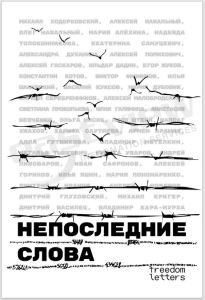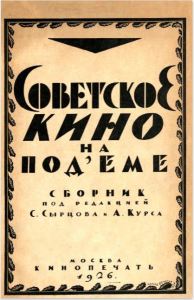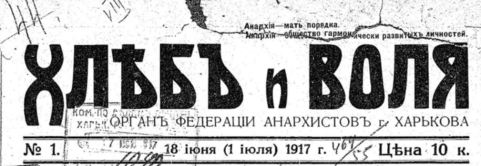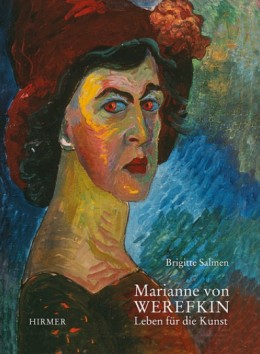This blog post was due to focus on the rewriting of Russia’s past and present in a new history school textbook, but now we sadly can add to it the rewriting of Russia’s future through the untimely death of Alexei Navalny.
Category: Russian
Lev Rubinshteĭn (1947-2024) : an anti-war Moscow poet with Ukrainian Jewish roots
 This week saw the death following a road accident of the poet and activist Lev Rubinshteĭn (Rubinstein). Rubinshteĭn is most closely associated with Russia and especially Moscow, where he lived and died and and whose son he was most famous as through his status as one of the founders of Moscow conceptualism. Yet while Russia’s dissident and artistic scenes have lost a shining light through his death, Ukraine has also lost a friend (he consistently spoke out against Russian aggression again Ukraine) and a son too: Rubinshteĭn was born in Moscow to Jewish parents who both came from Ukraine. Continue reading “Lev Rubinshteĭn (1947-2024) : an anti-war Moscow poet with Ukrainian Jewish roots”
This week saw the death following a road accident of the poet and activist Lev Rubinshteĭn (Rubinstein). Rubinshteĭn is most closely associated with Russia and especially Moscow, where he lived and died and and whose son he was most famous as through his status as one of the founders of Moscow conceptualism. Yet while Russia’s dissident and artistic scenes have lost a shining light through his death, Ukraine has also lost a friend (he consistently spoke out against Russian aggression again Ukraine) and a son too: Rubinshteĭn was born in Moscow to Jewish parents who both came from Ukraine. Continue reading “Lev Rubinshteĭn (1947-2024) : an anti-war Moscow poet with Ukrainian Jewish roots”
Offensive purchases : ebooks in favour of the Russian war against Ukraine
As the latest newsletters from our department and from the Cambridge University Libraries Decolonisation Working Group show, the questions of how best [a] to handle and catalogue and [b] instruct our readers about the offensive material in our libraries is a very live one. Of *course* we have such material – research libraries inevitably acquire titles that represent the negative aspects of the world our academics and students research and not only the positive ones. A big issue lies in making sure that our readers understand that the presence of a particular book or other item in Cambridge collections does not equate with the endorsement of its contents by library or academic staff.
This issue has been in my mind as I’ve been undertaking the distasteful task of selecting and cataloguing various pro-war Russian books (all ebooks, since they are easier to buy at the moment than print books). It would be easiest of all not to buy them in either form, but it is important that our readers can see what is being published in Russia during the all-out war against Ukraine, to get a feeling for the kinds of material being pushed at the Russian reading public. Continue reading “Offensive purchases : ebooks in favour of the Russian war against Ukraine”
(Non)final words : Ukraine in Russian political trials
 Among the 23 largely Russian ebooks we bought this week is Neposlednie slova – “Not the final words”, referring to the “final word” that a defendant in Russia has after judgement has been passed down in their trial. While they have no impact on the defendant’s sentence, the fact and content of these final words, or final statements, are significant, as the following text explains:
Among the 23 largely Russian ebooks we bought this week is Neposlednie slova – “Not the final words”, referring to the “final word” that a defendant in Russia has after judgement has been passed down in their trial. While they have no impact on the defendant’s sentence, the fact and content of these final words, or final statements, are significant, as the following text explains:
“In recent years and, particularly, in recent months in Russia, a distinct oral/literary genre has re-emerged — the “final statement” of a defendant. Paradoxically, the “cage” in a court room (in today’s Russia, the accused are put in a bullet-proof glass booth) appears as the only remaining place where a person can still speak freely. Thus, it can be said, without exaggeration, that the courtroom, where people are tried for dissent, is a last bastion of freedom of speech in today’s Russia.” [from the blurb for a lecture by Anna Narinskaya at the Harriman Institute in April this year] Continue reading “(Non)final words : Ukraine in Russian political trials”
Early Soviet Cinema Collection and Ukrainian film : the August 2023 Slavonic item of the month
 At the tail end of the 2022/23 academic year, we were able to buy access to East View’s Early Soviet Cinema Collection, which provides digitised copies of 119 books published between 1897 and 1948. At the moment, there are only very brief author/title records for most of these but current University members can browse them all directly on the East View platform.
At the tail end of the 2022/23 academic year, we were able to buy access to East View’s Early Soviet Cinema Collection, which provides digitised copies of 119 books published between 1897 and 1948. At the moment, there are only very brief author/title records for most of these but current University members can browse them all directly on the East View platform.
“Soviet” can often mean Russian, rather than anything more representative of the Soviet Union; that’s largely the case here. But while the collection is fully russophone, there is at least some diversity in terms of subject matter, as an examination of the collection’s contents show when looking in particular for coverage of the hugely important Ukrainian film industry. Continue reading “Early Soviet Cinema Collection and Ukrainian film : the August 2023 Slavonic item of the month”
History of Modern Russian and Ukrainian Art Online
This week, we were able to buy permanent purchase to this long-requested database of Ukrainian and Russian art history books and journals From the supplier’s promotional material:
The collection documents the history of modern Russian and Ukrainian art. It encompasses critical literature, illustrated books, and art periodicals. It also offers a selection of early 20th century art-related serials. These historical sources of pre- and post-revolutionary art reflect the diversity of artistic thought in the first thirty years of the 20th century.
This is hugely welcome news for our researchers, with requests for this database coming in regularly over the years but with enough money to make the purchase only coming now. The books and journal issues were scanned from microfilm, so are all in black and white (as many would of course have been originally), which takes a slight shine off the delight, but our students and academics have been clear that this is a collection Cambridge really needs.
Next week, we will load records for the database’s individual titles into iDiscover, but for the moment you can browse the 140-odd books and 30 or so journals (listed at the end of the page the following link takes you to, under Other) directly on the Brill platform:
*illustrations from Anatolʹ Petryt︠s︡kyĭ’s 1929 Teatralʹni stroï
Mel Bach
Ukraine in new electronic resources
A tranche of funding from the UKRI and other sources earlier this year has allowed Cambridge University Libraries to buy large amounts of electronic material that had been flagged for purchase but had not previously been feasible for us to buy. This blog post looks at Ukraine in some of these resources (but you can also see a summary of all the resources available here: https://ejournalscambridge.wordpress.com/2023/05/03/new-data-rich-research-resources-for-cambridge-in-2023/).

There are three obvious candidates to search for Ukraine and Ukrainian material in amongst these new purchases:
- Russian Anarchist periodicals of the early 20th century (Brill)
- Soviet Woman Digital Archive (1945-1991) (East View)
- Soviet Cinema Online. Archival Documents from RGALI, 1923-1935 (Brill)
Waiting for Swan Lake : the war against Ukraine and awaiting the end of Putin
“Every day we wake up and hope that they will be showing Swan Lake on TV.”
The ICC arrest warrant issued yesterday for Vladimir Putin and Maria Lvova-Belova, the Russian children’s rights commissioner, for the illegal deportation of Ukrainian children may make some Russians tentatively more hopeful that Tchaikovsky’s Swan Lake will appear on their screens at some point. While the UK is alerted to serious news by non-stop all-main-channels coverage complete with news alert banners and presenters in sombre dress, Russia has traditionally been alerted to significant changes by the replacement of ordinary programmes by ballet. Continue reading “Waiting for Swan Lake : the war against Ukraine and awaiting the end of Putin”
Marianne Werefkin: a pioneering modernist

I was interested to hear about the Making Modernism exhibition which opened at the Royal Academy in November and continues until 12 February. It is described as “the first major UK exhibition devoted to pioneering women working in Germany in the early 1900s” and highlights four women in particular. Three of these, Kӓthe Kollwitz, Paula Modersohn-Becker and Gabriele Münter, were familiar names to me and indeed have been mentioned previously in our blog post on German Expressionism in Leicester. But I had not heard of Marianne Werefkin (1860-1938) and she seemed worthy of further exploration.
She was born into Russian nobility, and as a young woman her artistic talents were recognised and encouraged, with lessons from the renowned artist Ilya Repin. In the 1890s she moved to Munich with her partner Alexej von Jawlensky who was also an artist. At this time she was probably the more skilled painter of the pair but chose to allow her art to take a back seat for a time in order to support his development. She embraced a more expressionist style of painting in the early 1900s and was one of the founders of the Neue Künstlervereinigung München which was a forerunner of the important Der Blaue Reiter movement. Continue reading “Marianne Werefkin: a pioneering modernist”
The war on Russian writers against the war on Ukraine

Next week will see the launch of collaborative work to bring some of the UL’s Ukrainian material together into a pop-up exhibition. This week, we will focus briefly again on the effect Russia’s war on Ukraine is having on its own country, this time through the prism of the leaked list of authors that the Moscow Dom Knigi bookshop network have apparently banned their staff from putting on display (a full ban is thankfully not in place); an article in Russian about this can be found here. The ban largely relates to the authors’ appearance on the list of ‘foreign agents’ (inoagenty) this blog has mentioned before, which ultimately boils down to their stance against Russia’s invasion of Ukraine.
Continue reading “The war on Russian writers against the war on Ukraine”





